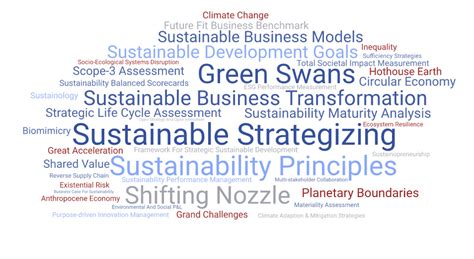Oceanography, the study of the ocean and its phenomena, extends its influence beyond marine biology and environmental science, reaching into the realm of veterinary medicine. This article delves into how breakthroughs in oceanographic research are shaping new standards and innovations in pet care. By exploring the intersection of ocean science and veterinary practices, we uncover how findings related to ocean health and marine ecosystems are informing the development of cutting-edge treatments and preventive measures for pets. From novel therapies inspired by oceanic organisms to improved understanding of aquatic environments’ effects on pet health, these advancements offer promising avenues for enhancing the well-being of our furry companions.
Join dominure.com for a detailed examination of this topic.
1. Why Oceanography Research Matters
Oceanography research is crucial because it provides insights into the health of marine ecosystems, which directly and indirectly affect land-based environments and species, including pets. The ocean plays a significant role in regulating the Earth’s climate, influencing weather patterns, and supporting diverse marine life. Understanding these processes helps researchers identify how changes in the ocean’s health can impact other areas, including animal health.
For instance, oceanographic studies on pollutants, such as microplastics and toxic algae, reveal their potential effects on both marine and terrestrial life. These insights are vital for veterinary medicine as they inform the development of strategies to mitigate the impact of environmental toxins on pets. Additionally, advancements in oceanography contribute to discovering new compounds and therapies derived from marine organisms that could be used in veterinary treatments. By bridging oceanographic research with veterinary science, we can enhance our understanding of how environmental factors influence pet health and promote more effective, evidence-based care for our animal companions.

2. How Oceanographic Findings Affect Veterinary Medicine
Oceanographic findings have a profound impact on veterinary medicine by providing crucial data on environmental factors that affect pet health. Research into ocean pollutants, such as microplastics and heavy metals, reveals how these contaminants can enter the food chain and potentially harm pets. For example, toxic algae blooms, which are influenced by ocean temperature changes, can produce harmful toxins that affect both marine and terrestrial animals, including pets that may ingest contaminated water or prey.
Furthermore, oceanography has led to the discovery of novel compounds from marine organisms, such as sea sponges and algae, which have potential therapeutic applications in veterinary medicine. These marine-derived substances are being explored for their anti-inflammatory, antimicrobial, and regenerative properties, offering new treatment options for various pet health conditions.
By integrating oceanographic research with veterinary science, we gain a better understanding of how environmental changes impact animal health, allowing for more effective prevention and treatment strategies tailored to the specific needs of pets.

3. What Innovations Have Emerged
Recent innovations emerging from oceanographic research have significantly advanced veterinary medicine. One notable development is the use of marine-derived compounds in treatments and supplements. For example, omega-3 fatty acids from fish oils are widely used to reduce inflammation and support overall health in pets. Additionally, marine algae and seaweed have been incorporated into pet diets to provide essential nutrients and support digestive health.
Another innovation is the advancement of environmental monitoring techniques that track pollutants and toxins in marine environments. These techniques help identify potential risks to pets, enabling veterinarians to develop targeted preventive measures. Research on the effects of climate change on marine ecosystems has also led to new insights into how shifting environmental conditions can impact pet health, guiding the creation of adaptive care strategies.
Overall, these innovations reflect a growing synergy between oceanography and veterinary science, enhancing the ability to address environmental factors influencing pet health and offering new therapeutic options.

4. Why These Innovations Are Crucial for Pet Health
These innovations are crucial for pet health because they address the direct and indirect impacts of environmental factors on animals. Marine-derived compounds, such as omega-3 fatty acids from fish oils and nutrients from seaweed, offer proven benefits for managing inflammation, improving joint health, and supporting overall well-being in pets. By incorporating these substances into pet care, veterinarians can provide more effective treatments and dietary supplements that enhance the quality of life for animals.
Furthermore, advancements in environmental monitoring and pollution detection are vital for identifying and mitigating risks associated with toxins that can affect pets. By understanding how pollutants and harmful substances from marine environments can enter the food chain or contaminate water sources, veterinary practices can better prevent exposure and manage health issues arising from environmental contaminants.
The insights gained from oceanographic research also help veterinarians anticipate and adapt to changes in disease patterns influenced by climate change. This proactive approach ensures that pets receive timely and appropriate care, addressing emerging health challenges related to environmental changes and improving long-term health outcomes.

5. How Future Research Could Enhance Veterinary Practices
Future research in oceanography holds the potential to greatly enhance veterinary practices by deepening our understanding of the complex interactions between marine environments and pet health. As oceanographic studies advance, they could lead to the discovery of new marine-derived substances with therapeutic benefits, offering innovative treatment options for a range of conditions in pets. For instance, exploring uncharted marine organisms may yield novel compounds that could be developed into effective medications or supplements.
Additionally, ongoing research into pollutants and toxins in marine environments could improve detection methods and lead to better preventive strategies. Enhanced environmental monitoring could provide more accurate assessments of risks, allowing veterinarians to develop targeted interventions to protect pets from emerging contaminants.
Furthermore, integrating findings on climate change and its effects on marine ecosystems could help predict and manage health issues related to shifting environmental conditions. This knowledge would enable veterinarians to adapt their practices to address new challenges, such as changes in disease prevalence or the introduction of new pathogens.
Overall, continued collaboration between oceanographers and veterinarians promises to advance our ability to safeguard pet health

In conclusion, the intersection of oceanography and veterinary medicine reveals a promising frontier for enhancing pet health. Innovations driven by oceanographic research, from marine-derived treatments to improved environmental monitoring, offer valuable tools for addressing the complex impacts of environmental factors on pets. By continuing to explore these connections, we can develop more effective therapies, anticipate emerging health risks, and implement proactive measures to safeguard our animal companions. Embracing these advancements not only enriches our understanding of the relationship between marine and terrestrial environments but also ensures that pets receive the best possible care in an evolving world.
dominure.com

